Last month, Triple P (Positive Parenting Program) practitioners representing over 18 South Carolina counties gathered in Columbia for a day of networking, learning and celebrating how Triple P impacts families across the state.
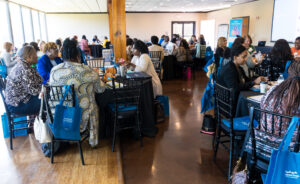
Triple P South Carolina Practitioner Summit
Children’s Trust Triple P team held the first annual Triple P South Carolina Practitioner Summit, where they launched the Triple P South Carolina Network. This network is for professionals to access training, research and statistics, and to build connections with other Triple P practitioners in the state.
We interviewed Triple P practitioners in attendance, including Liv Hayes, family development coordinator at Upstate Family Resource Center in Spartanburg; George Hicks, social services specialist at Share Head Start in Greenville; and Stacey Scott, district social worker at Greenville County Schools in Greenville.
With more than 12 years of combined experience practicing Triple P, they shared about their experience with the program, its impact in their communities and the hopes they have for the Triple P South Carolina Network.
Why did you choose to attend the summit today?
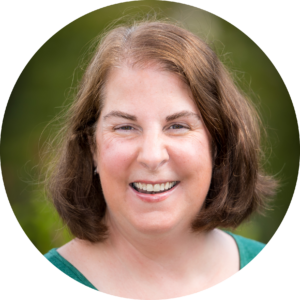
Liv Hayes, Upstate Family Resource Center: I really love how much the Positive Parenting Program has grown in our state and especially in the community that I work in… I love teamwork and collaboration, networking and getting to know other practitioners all over the state.
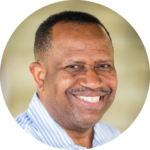 George Hicks, Share Head Start: I chose to attend the summit because I often believe there are a lot of different answers and experiences, and when you’re able to bring practitioners together, they have different nuggets that they can share. Being able to learn from peers, as well as the presenters with their knowledge, gives me more tools in my toolbox and, in turn, adds more value to the families that I serve.
George Hicks, Share Head Start: I chose to attend the summit because I often believe there are a lot of different answers and experiences, and when you’re able to bring practitioners together, they have different nuggets that they can share. Being able to learn from peers, as well as the presenters with their knowledge, gives me more tools in my toolbox and, in turn, adds more value to the families that I serve.
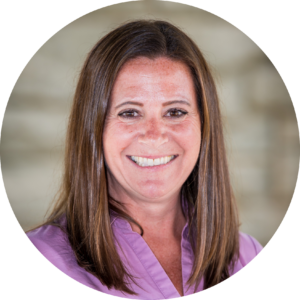
Stacey Scott, Greenville County Schools: I attended the summit today so that I could network with other people who are practicing Triple P and gain some additional information about the program.
What benefits do you anticipate from the South Carolina Triple P Network launch and why is networking with peers important to you?
Liv Hayes, Upstate Family Resource Center: I love hearing what works in other communities so we can try to replicate it. So that is the main thing: Learning what is working well in your community and what have you tried that doesn’t work.
George Hicks, Share Head Start: One of my favorite books has a saying that “iron sharpens iron,” and so it’s good to be able to know, first of all, who your peers are. And then to be able to share what you do, but also to be able to learn from other people. Also share, ‘I messed up’ and for other people to do the same because sometimes it’s just as important knowing what not to do, as to know what to do. And so being able to have something where it’s easily accessible: you know where people work, you know which area they work in—it just makes it easier to encourage and empower parents.
Stacey Scott, Greenville County Schools: I think it’s important to network because I can hear other examples of stories that they’re sharing in other parts of the state. I think when we network, we all have our different strengths and negative things that might not be working with other programs, but definitely the positive things that are working. Then I can take those examples and use them with our practice.
How have you seen Triple P change families?
Liv Hayes, Upstate Family Resource Center: In a more general term, it is just when the lightbulb goes off when you’re talking to a family… It brings a balance to parenting, and I love it when parents have a paradigm shift. They shift over from looking for the negative things or negative behaviors their kids are doing. They get excited when they see the connection between ‘If I positively reward my child for behaviors I like, I’m going to see more of those.’ It’s just very rewarding when you know they’re going to improve their parenting, they have concrete strategies and they come back for more… Teaching them and getting them to understand that if you look for the good and you set your kid up for success, you’re going to have more successful situations and that’s going to leave you less stressed and less overwhelmed. And then you’re going to be a better parent all the way around. I just believe in the philosophy; I just love it.
Stacey Scott, Greenville County Schools: I think Triple P is very positive for families. The families that I work with, once they complete the program, say that they feel that they are more confident and patient in being a parent. So, I think that’s really helped them. I also work with the teen parents in the schools, and it just helps them get ready to be a new parent.
What do you want others to know about Triple P?
Liv Hayes, Upstate Family Resource Center: I want others to know that every single parent or guardian or grandparent or anybody who is ever interacting with a child can benefit and learn a framework and a balanced approach to how we interact with children… Triple P balances it and kind of makes it to where you’re showing the value of understanding your child’s developmental age. That’s not bad behavior, that’s developmentally appropriate behavior. When they learn that, it changes how they view it… [Triple P] is for everybody. It doesn’t matter if you have been referred by DSS. It doesn’t matter if you have an older child. It can be for everybody. I’m not referred, and I take it home with me to my children. I would just say that it’s for everybody and that everyone can learn from it. It’s an approach that is evidence-based. It is respectful to the child and to the parent; that’s what I love about it, too.
Stacey Scott, Greenville County Schools: I would like others to know that Triple P is such a positive program for families, and I really like that families are guiding the process. It’s not us telling them what they need to do as a parent; it’s them telling us what they want to learn and what they hope to gain out of the program, and they set their own goals, which is great they are kind of leading that process.
How are you a champion for children and how can others be a champion for children?
George Hicks, Share Head Start: Being a champion for children is important to me because often children aren’t old enough to vote, they aren’t old enough to have jobs, so often they don’t have a voice. And so, it’s important to me to speak for people who don’t have a voice. So that they can ultimately have the privilege of growing up and being in environments where they are safe so they can flourish to be the best versions of themselves that they can possibly be.
Stacey Scott, Greenville County Schools: I think being a champion for children would be just providing that support to those families. I work with the school district, so I see a lot of families that need extra support. So, just reaching out and giving them options of things that they can do to get support helps them become a more confident parent. And hopefully, that makes the whole family more positive together.
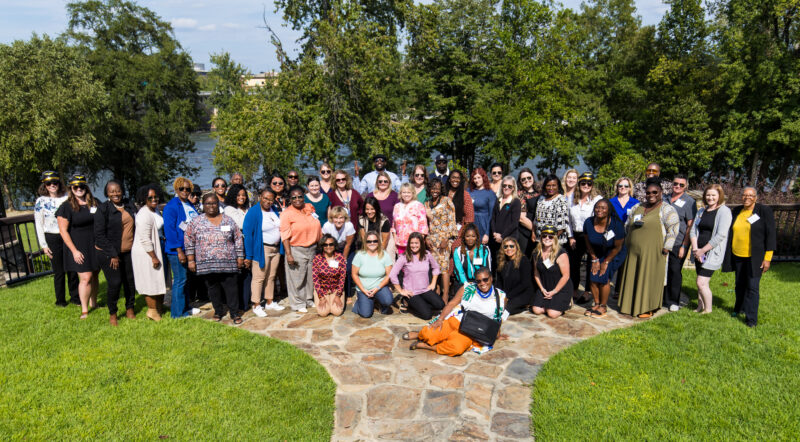
Triple P South Carolina Practitioner Summit Attendees






